The Cannes Film Festival is generally considered the most prestigious of all international film festivals. With good reason.
Every year, global filmdom's elite meet and greet at the tiny resort town in South France, to see the best work from filmmakers the world over.
It goes without saying, of course, that the festival counts some of cinema's best and brightest moments among its alumni.
As the 63rd edition of the festival gets underway, Time Magazine has published a list of the Top 10 noteworthy Cannes Film Festival Movies, as a way to trace the festival's rise to prominence.
Let's take a look:
The Third Man, 1949
The international film festival at Cannes began on the least auspicious of notes. Set to begin on September 1, 1939, proceedings were disrupted when Adolf Hitler's Germany invaded Poland, plunging humanity into World War II in the process.
After the war, Cannes sputtered before truly finding its feet. In 1946, the jury awarded the top prize to 11 of the 13 films shown in the competion, while the following year no prize was awarded, and the year after that there was no festival at all!
Everything changed in 1949, the first year Cannes crowned an undisputed winner. And what it winner it was -- Graham Green's murder mystery, The Third Man, set in postwar Austria.
At the time, The Third Man -- with its international cast and crew -- was considered hip and at the cutting edge of film fashion. Today it's rightfully regarded as a classic.
The Wages of Fear, 1953
Image: A scene from The Wages of FearToday, it's not unusual for Hollywood blockbusters to cost into the hundreds of millions of dollars to make. And, yet, their action sequences are often painfully and embarrassingly bad.
They could all take a lesson from The Wages of Fear, a 1950's French drama about men in South America transporting nitrogylcerin across treacherous terrain.
And, oh, what an ending!
La Dolce Vita, 1960
Image: A scene from La Dolce VitaThe name in Italian means 'The Good Life'. But, in reality, Federico Fellini's three-hour glimpse into the highs and lows of upper-crust Rome could be described as something far more perverse.
Not surprisingly, it went on to become an international hit. And, in terms of real dollars, it is still the top foreign-language film released in the US.
Taxi Driver, 1976
Image: A scene from Taxi DriverIt may have taken the Academy Award an unapologetically long time to properly honour Martin Scorsese, but not the jury at Cannes.
Led by American playwright Tennessee Williams, the jury at Cannes 1976 gave its seal of approval to Scorsese's gritty Taxi Driver.
Starring Robert De Niro as cabbie Travis Bickle, the movie peels back the layers of New York city to reveal something frightening within.
Tree of Wooden Clogs, 1978
Image: A scene from Tree of Wooden ClogsIn 1978, the jury at Cannes faced a dilemma.
The year before the Palme d'Or had gone to Padre Padrone, an Italian film. Now, they were faced with an even more impressive effort from Italy, Tree of Wooden Clogs, Ermanno Olmi's neorealist look at peasant life in Lombardy, Italy.
Ultimately, they made the right choice, and Italians carried the day for the second year in a row.
Sex, Lies, and Videotape, 1989
Image: A DVD cover of Sex, Lies, and Videotape1989 remains a controversial year at Cannes.
Two young American independent filmmakers, Steven Soderbergh and Spike Lee, were considered by many to be equally worthy of the top prize -- Soderbergh for a clever look at middle-class Americana; Lee for distilling raw African-American drama and rage.
But Soderbergh's Sex, Lies, and Videotape eventually won out, leaving Lee's Do the Right Thing on the outside looking in. Though there was talk of racially-motivated voting, the fact remains that both films were equally appreciated.
Farewell My Concubine, 1993
Image: A scene from Farewell My ConcubineCannes has always called itself an International Film Festival, but its leaning have been decidedly pan-European, with a healthy dose of America thrown into the mix.
All of that changed, however, with Farewell My Concubine winning the top prize in 1993.
Chen Kaige's story of two opera stars was as controversial as it was riveting: Chinese censors frowned on it for depicting government-forced betrayals during the Chinese Cultural Revolution.
Pulp Fiction, 1994
Image: A scene from Pulp FictionQuientin Tarantino's Reservoir Dogs certainly made folks in the cinema world stand up and take note.
Unfortunately, some stood up to leave the theatre, saying the film was too gratuitous with violence and vulgarity.
Enter Pulp Fiction, Tarantino's opus, which retained much of the attitude of his earlier work, while adding a fresh veneer of slickness and nuance. The result?
The definitive movie of the 1990s, rightly recognised as such by the jury at Cannes.
The Taste of Cherry, 1997
Image: A DVD cover of The Taste of CherryIranian filmmaker Abbas Kiarostami's The Taste of Cherry is a compelling look at one man's journey to find someone to bury him after he dies. It's contemplative. It's funny. It's sad. It's engaging.
Known for its leisurely pace, extended shot lengths and moments of silence, the film earned high praise from many critics -- and the wrath of others. Roger Ebert famously decried it as a 'lifeless drone'.
4 Months, 3 Weeks and 2 Days, 2007
Image: A scene from 4 Months, 3 Weeks and 2 DaysWhat is cinema, if not shocking and controversial? Romanian filmmaker Cristian Mungiu's story about a college girl who needs an illegal abortion, and her roommate, went from completely unknown to the talk of Cannes in 1997.
The film has often been described as 'pitch perfect', and has scored exceptionally high on sites like Rotten Tomatoes and Metacritic, where it enjoys positive reviews by over 95% of critics.

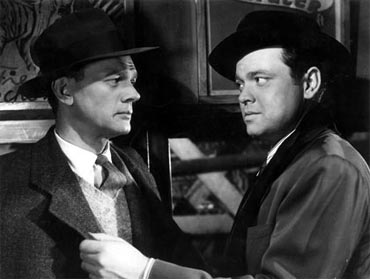
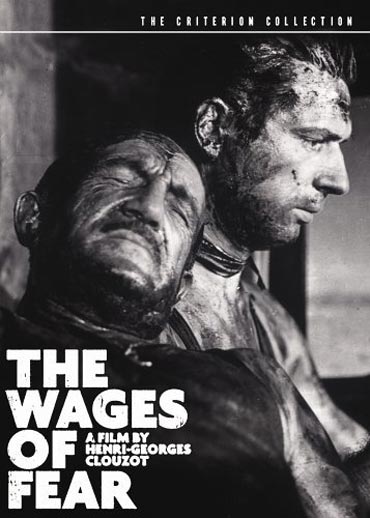
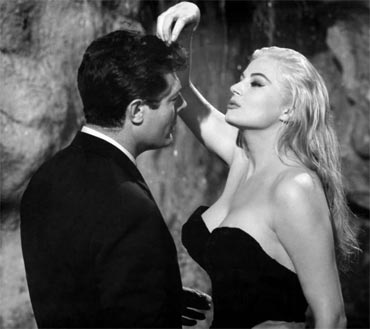
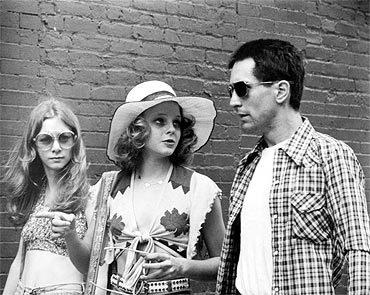
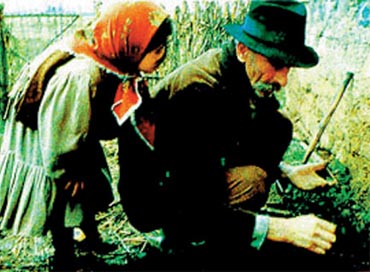
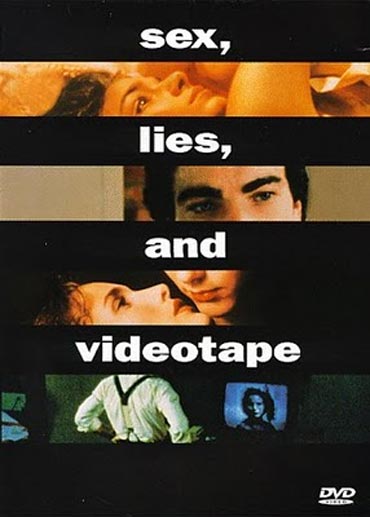

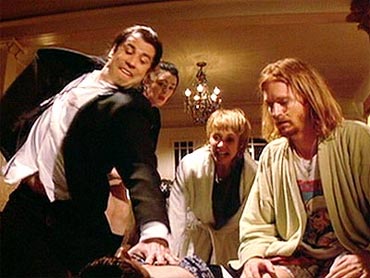
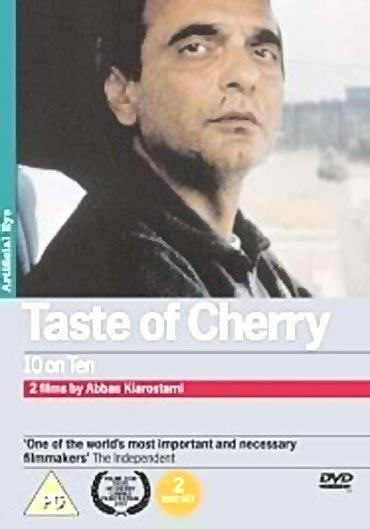
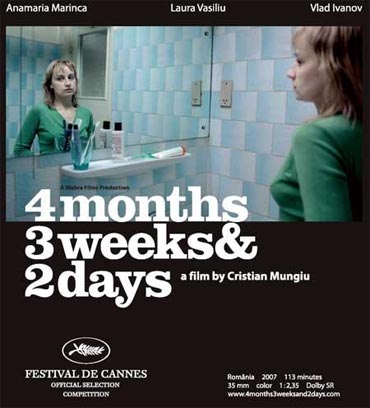
Comment
article